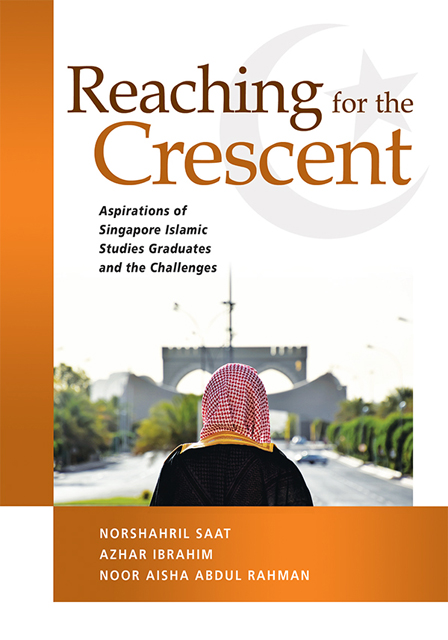Book contents
- Frontmatter
- Contents
- Preface
- Abbreviations and Acronyms
- A Note on Translation, Spelling and Other Conventions
- 1 Introduction
- 2 Overview of Islamic Studies and Mode of Thinking
- 3 Singapore Islamic Studies Graduates: Learning Experience and Struggles
- 4 Current Islamic Studies Undergraduates: Navigating Uncharted Pathways
- 5 Challenges, Genesis and Prospects for Development
- 6 Religious Education, Dominant Religious Orientations and Their Impact
- 7 Conclusion
- 8 Bibliography
- Index
- About the Authors
Preface
Published online by Cambridge University Press: 01 September 2023
- Frontmatter
- Contents
- Preface
- Abbreviations and Acronyms
- A Note on Translation, Spelling and Other Conventions
- 1 Introduction
- 2 Overview of Islamic Studies and Mode of Thinking
- 3 Singapore Islamic Studies Graduates: Learning Experience and Struggles
- 4 Current Islamic Studies Undergraduates: Navigating Uncharted Pathways
- 5 Challenges, Genesis and Prospects for Development
- 6 Religious Education, Dominant Religious Orientations and Their Impact
- 7 Conclusion
- 8 Bibliography
- Index
- About the Authors
Summary
In the 1990s, Singapore government leaders raised questions as to whether Islamic education in the country adequately equips the Malay/Muslim community with necessary skills and knowledge to survive in the modern world. Students of religious sciences in full-time madrasahs were equated with school dropouts and deemed unprepared for the knowledge-based economy (KBE). Consequently, Malay/Muslim community leaders sought to readjust madrasah education to meet contemporary needs, and a number of the full-time religious schools underwent major revamp while the rest continue to be run the same way. Attention towards madrasah underperformance somewhat dissipated after the turn of the millennium: madrasahs promised to perform as well as national schools, agreed to work closely with the state’s curriculum guidelines, and the government faced community pressure not to close them down, even though they had never threatened to do so.
Now, Malay/Muslim leaders are focusing on the downstream of Islamic education. Majority of the asatizah complete at least twelve years of education in one of the local madrasahs. The concern of the state is no longer about the students’ achievements or the lack of them, but their attitudes, thought, and ideology. Already Islamic studies has been under global scrutiny, particularly after its graduates are found promoting radical, puritan, or conservative ideas to the masses. The state is also worried that the graduates are unable to contextualize religion based on Singapore values. However, in post-9/11, the state sees the asatizah’s worth in countering radicalism and terrorism through promoting “moderate” religious discourses, but all these would require efforts and resources to guide them. Without these guides, the asatizah will not be able to adjust and may end up displacing the local Malay identity with foreign ones depending on where they complete their religious education. We hear discussions about Malays turning to become “Arabized” as they inch closer to become more religious.
The subject of radicalism and terrorism has shaped much of the discourse on Islamic education that the bigger issues concerning Islamic studies graduates are overlooked. For instance, why do parents continue sending their children to madrasah, with the hope that they will become an asatizah and graduate with an Islamic studies degree? Every year, there will be excess demand for 400 primary one places for madrasah enrolment.
- Type
- Chapter
- Information
- Reaching for the CrescentAspirations of Singapore Islamic Studies Graduates and the Challenges, pp. vi - ixPublisher: ISEAS–Yusof Ishak InstituteFirst published in: 2023

